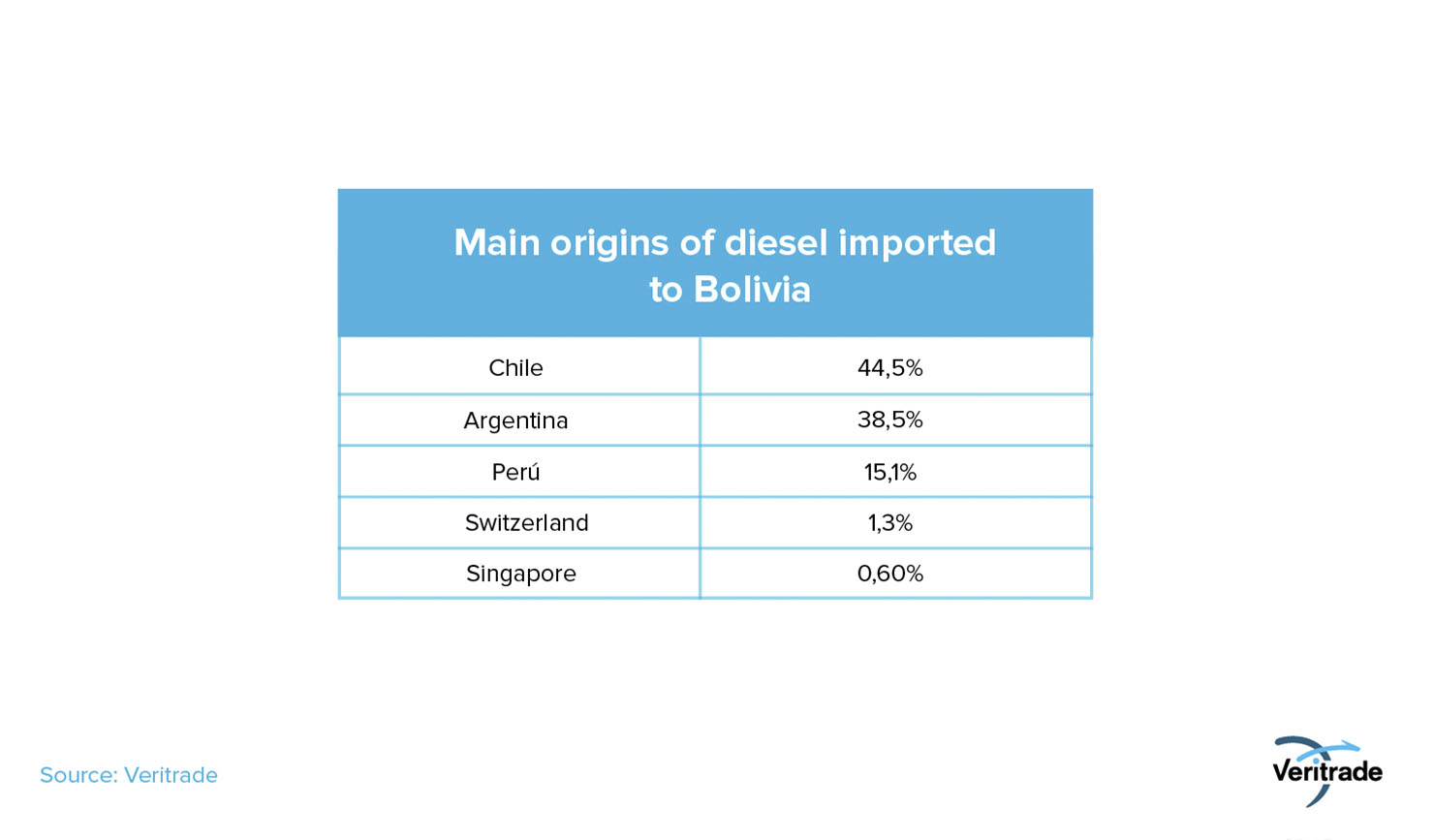Value of diesel imports increases in Bolivia
Published on 02 April 2019
The highland country was affected by the rise in the price of oil.
During the first eight months of 2018, the value of diesel imports in Bolivia was higher than in the same period of the previous year. This occurred despite the fact that the volume decreased, as a result of the rise in international prices.
Between January and August of 2017, the price of a barrel of WTI oil ranged between US $ 42.05 and US $ 55.24 and averaged US $ 49.41, while in 2018, the price was between US $ 58.07 and US $ 75.27, and the average was US $ 66.37.
In the following tables, you can see the comparison between the evolution of value, volume and prices over both time periods.


It should be noted that Bolivia is a net importer of oil, and that gas has a 41% share in the energy matrix, and that being an abundant resource in the country, this figure could be higher. At the moment, gas is the main generator of foreign exchange, but a good part of it must be used to import petroleum-based fuels, something that is not in itself unsustainable, but could mitigate if greater use were achieved: factor that is also a challenge in a country with a geography that complicates the installation of pipelines.
As for the origin of diesel, countries of the region predominate. It should be noted that, to a large extent, this has more to do with a logistical issue than with a productive one. Diesel has not necessarily been refined in Chile or Peru, but the fact that Bolivia is a Mediterranean country implies that the product is brought by land.

On the other hand, it is important to highlight that Bolivia's dependence on imports of petroleum-based fuels will be high if it is not invested in exploring and processing the oil from its deposits. Currently the production is 3,500 barrels per day, while Peru, which also goes through a stage of low extraction, produces 40,000 barrels per day and aims to reach 100,000.
It is true that the oil extracted from the Peruvian and Bolivian forests can be heavy, but in spite of that, exporting it to be taken to more complex refineries installed in larger hydrocarbon countries makes sense. On the other hand, good conditions for the production of oilseeds should lead to an increase in biodiesel production.
In general terms, the key to success lies in facilitating the work of specialized companies to extract resources that require complex and capital intensive processes and knowledge. In this way, more work will be given to the public and the costs for end users will be reduced.
For more information about Bolivia's exports and imports, you can access the Veritrade portal.
Request your free trial by going to: https://bit.ly/2HV6uhW